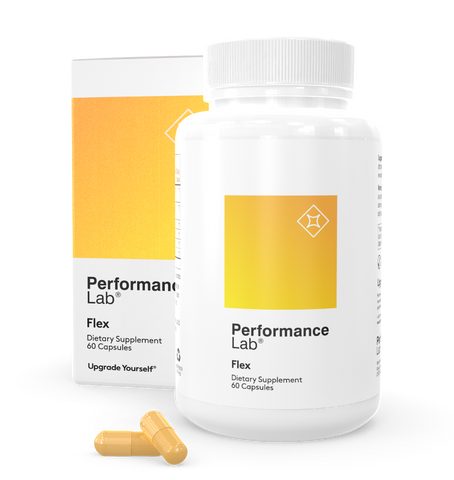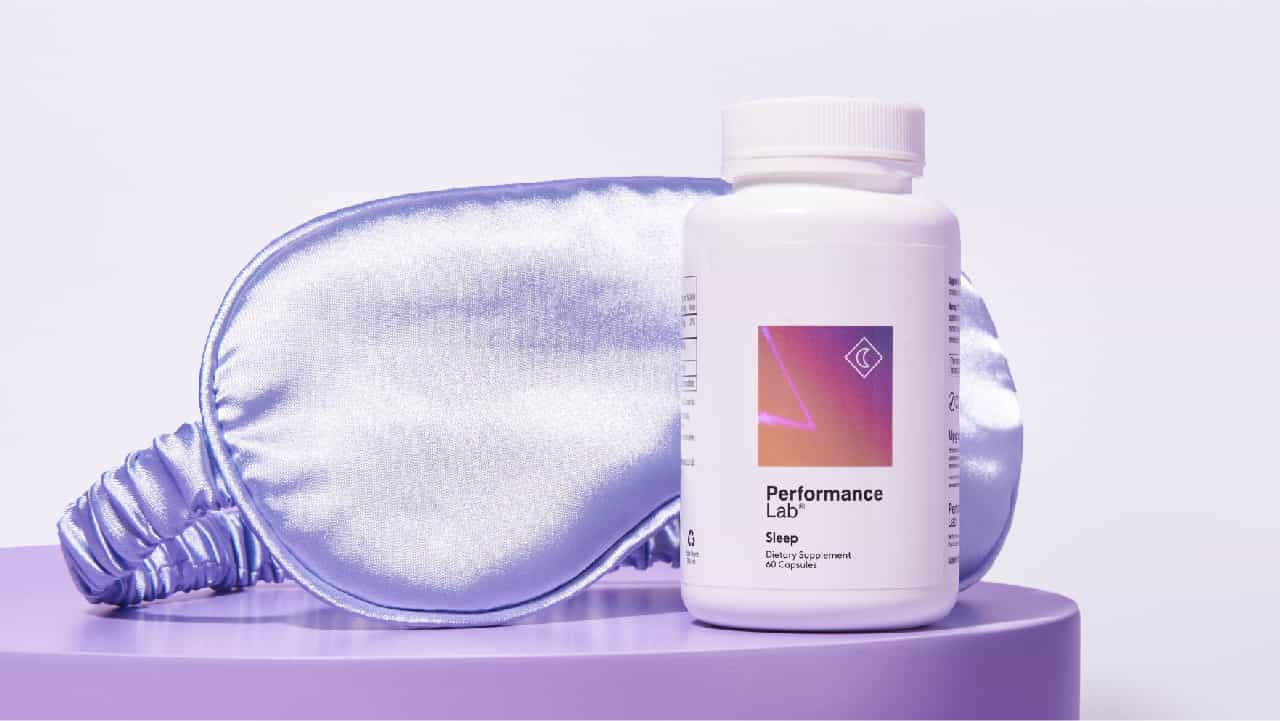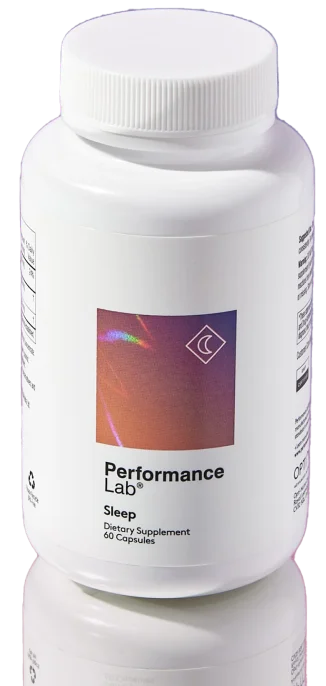Turmeric has gained a lot of attention in the natural health world. From people looking for a natural alternative to anti-inflammatory drugs to athletes looking to boost their recovery, it seems like a multi-purpose herb that may benefit almost everyone in some capacity.
But what about those looking to improve their sleep? There’s no question that sleep is one of the most important things you can do for your body, but the reality is that few of us actually get what we need, both in terms of quality and quantity.
Turmeric has been explored as a natural way to help achieve a better night's sleep by promoting relaxation and supporting overall wellness. But what does the science say?
Is it something you should add to your bedtime supplement stack? Or should you add turmeric to your wellness routine through options like supplements, teas, or even culinary recipes?
If you’re looking for a way to get the good night’s rest you deserve, allow us to give you the rundown on turmeric...
Related Post:Turmeric Benefits for Men
What Is Turmeric?

The golden-colored spice you see stocked on shelves at the supermarket is the one and only turmeric.
It belongs to the ginger family and has been used extensively throughout India, China, and Southeast Asia as a spice, preservative, and coloring material. It's considered one of the most valued spices in these cuisines.
Turmeric is also popular in Ayurvedic medicine and other traditional medicines in China and India for its antioxidant and anti-inflammatory properties.
While you may see turmeric in several cooking products and cuisines, where medicine is concerned, it’s usually curcumin we’re after - one of the bioactive compounds present in turmeric that’s largely responsible for many of its health-promoting properties, as well as its striking colour. (1)
Turmeric also contains nutrients such as vitamin C, which acts as an antioxidant and contributes to its overall health benefits.
Related Post: The Best Turmeric Supplement for Joint Health
What Does Turmeric Do?
Turmeric itself contains several bioactive compounds, including turmerin (a water-soluble peptide), essential oils (turmerones, atlantones, zingiberene), and several curcuminoids, including curcumin. (2)
Often, turmeric is consumed as part of a blend with black pepper or other super herbs and spices to enhance absorption and promote sleep and overall wellness.
Anti-inflammatory Benefits and Sleep
Turmeric’s reputation as a super spice largely comes from its powerful anti-inflammatory benefits.
Curcuminoids, specifically curcumin, are phenolic compounds that possess strong anti-inflammatory properties, as well as acting as powerful antioxidants to combat free radicals and prevent increasing levels of oxidative stress.
This potential anti-inflammatory benefit can have a direct impact on your sleep quality.
Chronic inflammation is a common culprit behind sleep deprivation, as it disrupts the natural sleep-wake cycle and makes it harder to achieve restful sleep.
The relationship between inflammation and sleep is two-fold:
-
Inflammation may cause sleep issues (3)
-
Sleep deprivation in turn may cause further inflammation in the body, keeping you trapped in a loop. (4)
How may turmeric help?
The curcumin found in turmeric extract has been shown in clinical trials to reduce levels of inflammatory cytokines—those pesky molecules that can keep your body in a state of alertness and interfere with your ability to fall asleep. Let's examine that more...
Can Turmeric Help You Get a Good Night's Sleep?
Turmeric is good for a lot of things. It has an extensive list of uses where its powerful anti-inflammatory and antioxidant properties may be beneficial, but what can it do for sleep? Is 'turmeric sleep' a thing? Let's find out...
Related Post:What is the Best Natural Sleep Aid?
Nighttime sleep is controlled by a complex mix of brain chemicals, as well as being influenced by various lifestyle and dietary factors.
But what you may not have known until now is that there is an intricate link between sleep, inflammation, and the immune system, and research suggests that cytokines may provide the answer to this link.
Cytokines are a type of regulatory glycoprotein that act as intercellular chemical messengers of the immune system. Some cytokines help promote sleep, while others can cause major disruptions to sleep patterns. (5)

The cytokines, inflammatory markers, and hormones affected by sleep exhibit diurnal variation, which means that levels are impacted when we don’t sleep enough.
Cytokines such as interleukin (IL)-6 generally increase at night and induce fatigue, but with sleep restriction, we instead see increases in inflammatory cytokines such as IL-1β, IL-6, and IL-17.
Studies show that prolonged acute sleep deprivation (34 hours) causes an increase in levels of the pro-inflammatory cytokine tumor necrosis factor alpha (TNF-α). (6)
Turmeric may help improve the quality and duration of sleeping hours by addressing underlying inflammation that disrupts normal sleep patterns.
Herbal therapies targeting insomnia and sleep disorders generally involve a multi-faceted approach aimed at modulating cytokines, managing neurotransmitters, reducing inflammation, and re-regulating the immune system, which is why curcumin and turmeric often come into the picture.
While it may not have the same effect on sleep as something like melatonin and other natural sleep supplements, turmeric may help to combat some of the underlying imbalances that contribute to sleep disruption in the first place.
More specifically, curcumin acts as a powerful cytokine modulator that can downregulate the expression of several pro-inflammatory cytokines. (7)
Thus, plants with anti-inflammatory actions like Curcuma longa (turmeric) can be combined with adaptogenic herbs, immunomodulators, and analgesics to modulate levels of cytokines and promote sleep.
However, because curcumin has low bioavailability, it must be paired with a bio-enhancer to increase uptake. Piperine, the active compound of black pepper, is commonly used to enhance the bioavailability of curcumin by up to 2000%. (8)
What Science Says about Turmeric and Sleep

The science on curcumin's anti-inflammatory properties is fairly conclusive: numerous studies have proven that it offers anti-inflammatory benefits such as those discussed above. It also offers antioxidant properties to help fight oxidative damage.
It's worth noting, however, that the majority of research has been done on animals such as mice and rat models, so further human research is welcome.
But what about sleep? There have been few human studies specifically examining curcumin's benefit for sleep, and results were mixed. Some of those studies saw little improvement when given direct to people suffering from insomnia or sleep disorders.
This may be because of the issue with its bio-availability, or because it's not so much a 'treatment' for sleep disorders as a protective effect. Meaning potentially taking it regularly helps sleep quality, for example, rather than only taking it whenever you have a problem.
A 2025 comprehensive meta-analysis of double-blind and other studies examining the interplay of sleep, the immune system and curcumin in contemporary research concluded that curcumin may 'play a role in regulating sleep patterns and enhancing immune function.'
The authors stressed that preliminary research showed promise that curcumin may have a positive impact on sleep quality, but more rigorous research was needed to determine how it may work and optimal dosages. (9)
One thing the authors did agree on was that adding curcumin to your diet or daily routine was positive for overall health, regardless of any sleep-promoting effects.
Other Potential Health Benefits of Turmeric

Turmeric and curcumin have been traditionally used in the treatment of several chronic conditions. What does science say about its potential uses beyond sleep and inflammation?
-
Cognitive dysfunction. A 2024 meta-study of curcumin and its potential benefits for cognitive function discovered that supplementation with the spice resulted in a 'statistically significant improvement in cognitive performance.' The authors suggested it showed promise for therapeutic benefits across different stages and causes of cognitive decline, particularly for working memory and the prevention of neurodegeneration. More research is needed. (10)
-
Immune health. Scientists suggest curcumin may have the power to modulate the immune system. (11)
-
Cardiovascular and heart disease. Curcumin has been shown to play a role in nitric oxide modulation (NO) - effectively making more of it available. Reduced NO is responsible for endothelial dysfunction - problems with the lining of blood vessels- so more NO available may help prevent cardiovascular disease. More standardized clinical trials and research is needed. (12, 17)
-
Cancer. The National Cancer Institute states that turmeric has shown promise in several early-phase clinical trials. Likewise, several studies have shown that turmeric may help to ameliorate certain cancer-related effects. However, it points out that the majority of trials so far are either in the pilot study stage or are small in size, with mixed results. More robust research is needed before it can be officially recommended to help or treat in this arena. (13)
-
Arthritis. Scientists in one study concluded that the anti-inflammatory benefits of curcumin could help reduce the inflammatory response among arthritis sufferers and 'effectively improve symptoms and play a role in treatment'. (14) It has also shown 'moderate to large improvements in pain and function in osteoarthritis', according to Examine.com. (15)
In addition to these benefits, turmeric is also a source of important nutrients, including vitamin compounds, which contribute to its overall health benefits.
How to Add Turmeric to Your Daily Routine

Bringing more turmeric into your daily routine is easier than you might think, and the health benefits go far beyond just reducing inflammation with its knock-on effects to the body, nervous system, potential weight loss, and more.
Whether you prefer drinking turmeric tea, adding a sprinkle of turmeric to your favorite dishes, or taking turmeric capsules, this golden spice can be a powerful ally in your quest for overall wellness. And hopefully better sleep.
Pairing turmeric with black pepper is a smart move, as it boosts the absorption of curcumin, maximizing the positive effects. You may also find turmeric combined with valerian root in some supplements.
Potential Side Effects of Turmeric
Turmeric is usually safe for most people to take. Potential side effects include stomach upset, dizziness, nausea, or diarrhea. These are usually mild and more common when you take larger dosages. Taking too much turmeric can also raise the risk of kidney stones if you're already susceptible.
Turmeric may also interact with blood-thinning medications, as well as chemotherapy drugs, immunosuppressive drugs, diabetes medication and more. Speak to your health provider before taking turmeric if you have any pre-existing conditions or are taking medications. (16)
For all the reasons above, we wouldn't recommend taking turmeric supplements with super-high dosages. In fact, we'd probably recommend you steer clear of standalone turmeric supplements altogether.
Instead, consider investing in themed supplement stacks that include turmeric as one part of the mix. Dosages are more likely to be safe, plus you can still enjoy the potential health benefits while also enjoying other proven ingredients for sleep, joint health and more.
Best Supplements for a Sound Sleep
Performance Lab Flex

The pain associated with arthritis, joint diseases, and even the aftermath of intense exercise can be a major impediment to sleep. It not only makes it difficult to fall asleep, but also to stay asleep. That’s where Performance Lab Flex comes into the picture.
Flex is an ultramodern joint supplement designed to support active joints to help you stay limber and comfortable at work, leisure, athletics, and all that you do.
Flex takes advantage of curcumin's benefits with a modest 250mg of CurcuWIN® turmeric. This is a patented, highly bioavailable version that doesn’t require black pepper.
Also included is easy-on-the-stomach botanical AprèsFlex® Boswellia serrata for further anti-inflammatory pain relief.
Plus OptiMSM® for connective tissues, Phytodroitin for cartilage, and Glucosamine Sulfate for lubrication.
Performance Lab Sleep

For nights when sleep just doesn’t want to happen, you may want to invest in a natural sleep aid.
While some sleep aids supply huge dumps of melatonin that can leave you groggy in the morning, Performance Lab Sleep provides a subtler option.
Montmorency tart cherries provide low-dose natural melatonin, backed up by melatonin precursor tryptophan to encourage the body to make more of its own sleep hormone. (This is also the ingredient in warm milk that can make you sleep before bed).
Magnesium helps to relax the muscles ready for sleep, while lemon balm completes the formula. Lemon balm is a natural herb that may help to reduce anxiety levels and aid symptoms of depression to boost sleep.


Final Thoughts
Turmeric has high nutritional value, and its potential anti-inflammatory benefits make it a useful addition to any diet. Science is investigating its role in a whole host of potential health issues, which show promise.
It's fair to say that it may not be the perfect go-to for an immediate sleep aid, but including it in your stack may help mitigate inflammation caused by everyday activities that can leave you creaky, in pain, and uncomfortable when bedtime rolls around.














